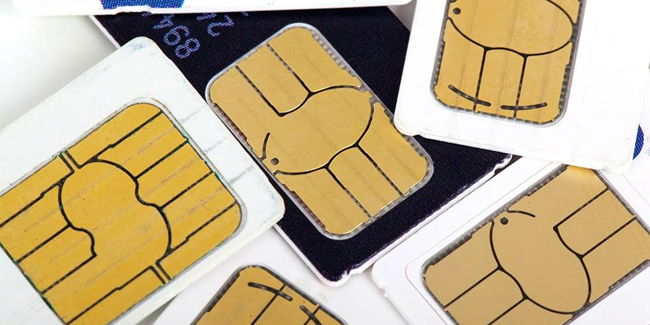Telcos were willing to work with the government in crafting the rules and regulations for the SIM Card Registration Act.
TELCOS — Telecommunications companies were willing to work with the Philippine government to craft rules and regulations for the recently ratified SIM Card Registration Act.

Globe General Counsel Atty. Froilan Castelo said in a statement that Globe Telecom was looking forward to threshing out critical issues surrounding its implementation.
According to Castelo, “critical issues” needed to be addressed including the timetable of registrations.
Once effective, the SIM Card Registration Act will require all SIM (Subscriber Identity Module) card subscribers with active services to register with their telcos within 180 days.

Globe Telecom said that its support for the measure signified its commitment to support the Philippine government in its fight against fraud and other crimes, adding that the said measure also paved the way for greater digital and financial inclusion.
“We hope that this bill, once enacted into law, will further strengthen government-private sector cooperation towards protecting mobile phone users against text scams and crimes perpetrated in anonymity,” Globe Telecom said.
Globe Telecom also said that it has around 85 million customers out of more than 120 million total mobile subscribers in the Philippines.
READ ALSO: NPC Says Philippines To Benefit From SIM Card Registration
PLDT Inc, its wireless unit Smart Communications, and the Philippine Chamber of Telecom Operators, meanwhile, said that they’re backing the said measure since it will “quash the proliferation of fraudulent spam messages, Smishing cases, and fraud” and will boost telecom security efforts in order to keep subscribers safe as well.
According to Smart Communications Vice President for Regulatory Affairs Atty. Roy Ibay, there should be a sufficient registration period and enough safeguard in order to protect prepaid subscribers.

Based on the report on ABS-CBN News, the ratified version of the SIM registration bill aimed to prevent the following: internet or electronic communication-aided crimes, bank fraud, text scams, trolling, spread of digital disinformation or fake news as defined under pertinent laws, unsolicited, indecent or obscene messages, libel, anonymous online defamation, and hate speech.
SMS-based or text phishing scams proliferated recently in what authorities thought was operated by an international syndicate.
Law enforcement, regulators, e-commerce sites, and financial institutions have worked together in order to mitigate the text scam which victimized users by asking for their personal information that were then used to siphon money.
Thank you for visiting Newspapers.ph. You may express your reactions or thoughts in the comments section. Also, you may follow us on Facebook.
